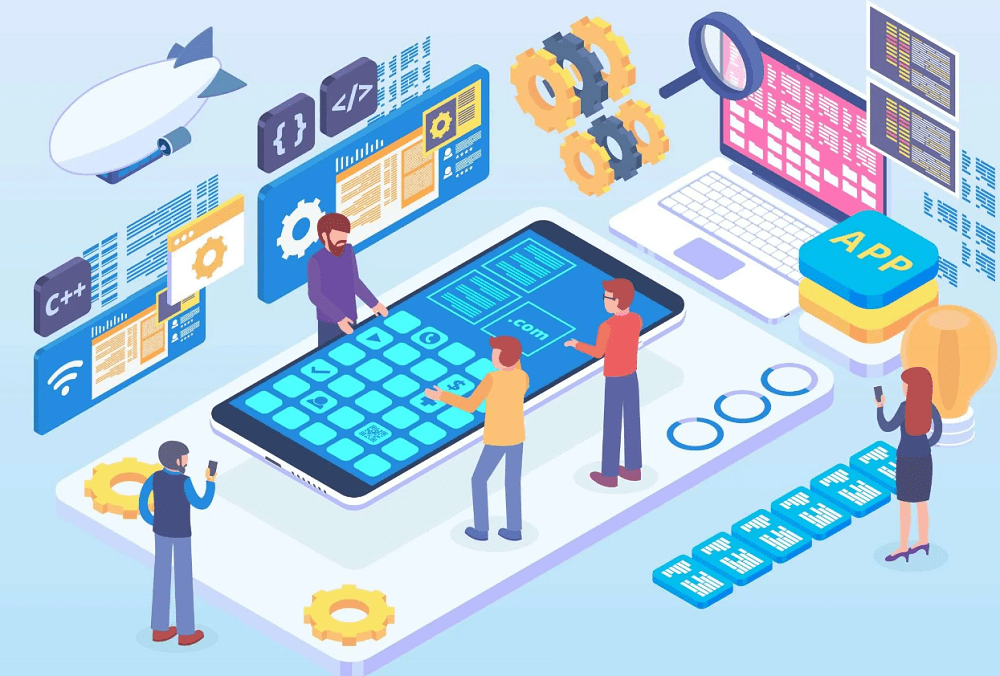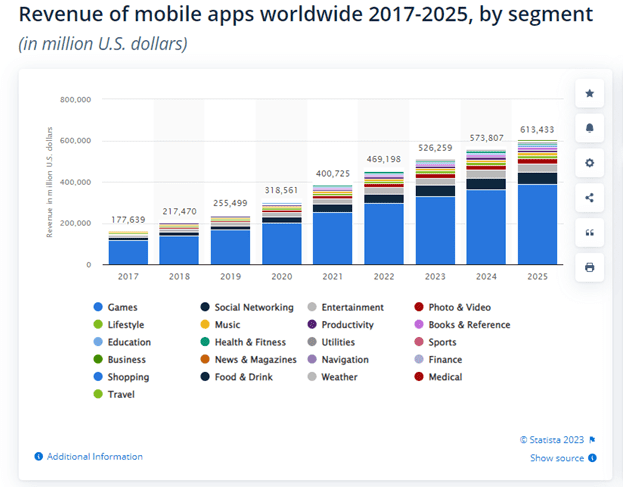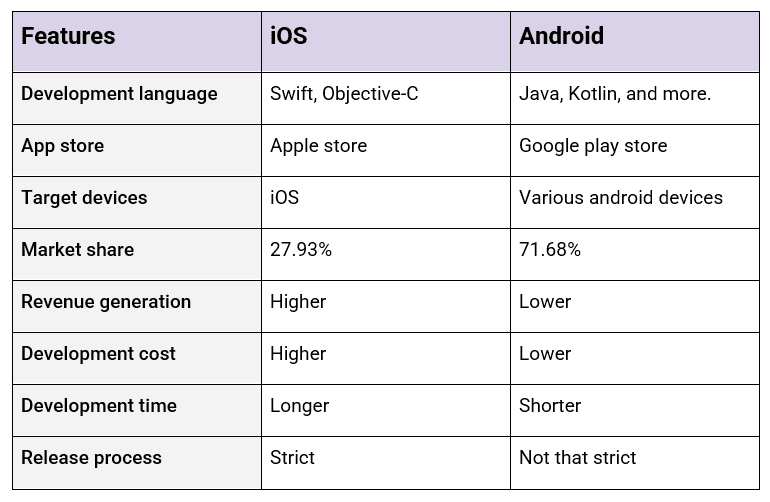
If you look around, you’ll observe we have apps for everything. They’re like food, and we consume every bit of it. If you have a business, you must consider app development along with a website.
Well, you’re at the right place. The app development journey can be overwhelming as it comes with tons of responsibilities, and your entire business depends on it. Fortunately, this article covers everything you must know to develop an app. Let’s study them step-by-step to help you understand better.

Why do you need a mobile app for your business?
The decision to build an app for your business requires thorough planning. But why do you need it? Let us help you solidify your decision
A. Improves visibility and brand recognition.
When you have a mobile app, your business prospers. With mobile phones consuming our entire day, humans spend 6-7 hours on average exploring and using multiple apps. This allows you to set a brand image and recognition for your business. Your users would know it’s you, increasing the chance of them building a secure relationship with your brand, especially if you’re an eCommerce platform.
B. Better customer engagement and loyalty
Once your app is out in the market, your users will actively engage with your business. If your app works seamlessly and answers users’ queries, it’ll help maintain and retain customers. With loyalty comes more profits.
C. Boost sales and revenue.
You need to ensure your app is user-friendly, simple, and intuitive for users to make purchases or explore it. The easier it is for them to communicate with your app, the more chances it increases to boost your sales and grow revenue channels.
D. Gain customer data and insights.
A mobile application is an excellent approach to gathering and examining client data. SMBs can examine collected information to determine client patterns and reactions to marketing strategies. You can use it to understand user behavior, customer comments, the most and least visited areas, time spent, and more.
You can form informed business decisions based on user interests. Additionally, companies can combine information from the mobile app with other sources, like social media websites and direct client encounters. Businesses can incorporate and analyze these data to better understand consumer preferences and purchasing patterns.
What are the requirements for developing a mobile app?
- Understanding your business demands and goals
- Knowledge of your target audience
- Availability of resources (budget, team, etc.)
What is the difference between iOS and Android development?
Android and iOS are the two most widely used platforms for creating mobile applications. Despite having comparable architectures, the two systems still employ various development and maintenance strategies.
Not only do the two systems differ from one another in terms of development, but they are similar when it comes to design and marketing tactics.

Why iOS?
- Apple users have always valued the controlled environment of their devices. They also adore how user-friendly and appealing the apps’ interfaces are.
- For tech-savvy audiences, the iPhone has always been an appealing product. The majority of iPhone users who are tech-savvy are open to new ideas.
- Leading experts, department heads, general administrators, and typically people who can spend more money on in-app purchases also favor iOS devices.
- If you target this innovation-loving demographic, your company will have more room to produce rapidly evolving apps with rich features. This allows you to generate goods and services that will shake up the market and maintain you in the lead. It follows that you will be the industry leader.
- iOS systems have a remarkable collection of advanced capabilities and unique functionality. It is a powerful platform for creating beautiful and intuitive apps. Even if starting a business is expensive, an iOS app can help you generate a respectable income.
Why Android?
- Applications cost less since Android attracts a fairly large audience. In contrast to other operating systems, most applications are free and available on the Google Play Store.
- Android dominates the app business because it can run on more devices than its rivals. There are more manufacturers of devices that work with Android apps than with iOS-specific apps.
- You require a Mac to build apps on iOS. However, this is different from Android. You can develop Android applications on Windows, Mac, and Linux.
- Additionally, you need to pay a one-time fee of $25 on the Google Play Store and $99 on the Apple App Store, annually.
- Android apps can be downloaded from any website, not just the Google Play Store. In addition to the Google Play Store, third-party websites can host apps. This is possible with Android’s software development kit and the option to install the program via the command line or directly on the device.
How to pick a development partner for your iOS or Android app?
1. Understand your business goals.
Make sure you have clear goals and a winning mindset before building a mobile app for your business. Ask yourselves about –
- What are your goals with this project?
- What is your budget?
- What will be your market strategy?
- Who will be your target audience?
- What is the project’s market scope?
- How will you work with your development team?
It’s imperative to have a clear understanding of your company’s needs in mind. Communicate these needs to your app developer because it is difficult to start a partnership. It may be challenging for your technical partner to produce the perfect match you want if you fail to communicate your business’s requirements with them openly.
2. Conduct thorough market research.
Every year, thousands of iOS and Android mobile applications are released. However, only some are successful; many fail a year or two after release. Now, one of the main reasons is insufficient market research and analysis.
Understanding the ins and outs of your niche, the tools, technologies, and the current market demand are all part of the market study process.
Additionally, learn more about the app development rate, tech stack, and other crucial information about the app development businesses from their projects. Conduct in-depth market research to understand what your competitors are doing, their strengths, and their limitations. You can make an effort to partner with an app development business that can inform you about the newest app trends in your industry.
3. Pick the right agency for mobile app development.
Be it choosing an agency for iOS app development or android app development – you need to be well aware of the industry intricacies. Take care of the following pointers before finalizing your decision –
- Analyze their portfolio
- See if the development costs fit with your budget
- Check if they’re positive about meeting deadlines
- Get clarity on data security
- Ask for maintenance policy
- Get client referrals
Wrapping Up
Now that you’ve gained insights on how to develop an iOS and Android app in 2023, you can get ready for further steps. Good luck with your app development journey.
